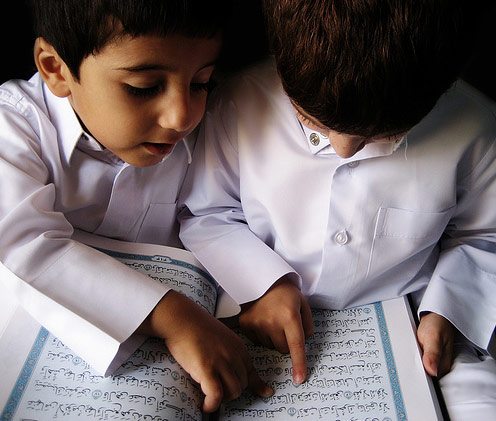Finding inner peace through Salah
The five daily Salah are the most important acts of worship to establish. This is the second pillar of Islam, our primary link to Allah and our daily reminder of the purpose of life. It is also our primary means of attaining inner peace.
Abandoning the five daily Salah is likewise the primary cause of misguidance and leads to Kufr. The Prophet (peace be upon him) said, “The difference between us and them (disbelievers) is Salah, so whoever abandons it has disbelieved,” (Saheeh Muslim)
Many scholars have understood this Hadith to mean that the abandonment of Salah, is itself, an act of Kufr. This is something to reflect on, as it shows the importance of Salah.
It is important to note that when we are talking about the five daily Salah, we are referring primarily to the Fard (obligatory) Rakahs of each Salah.
These are:
- Two Rakah every morning before sunrise – Fajr
- Four Rakah every afternoon after the sun begins its decline – Dhuhr
- Four Rakah every mid-afternoon before sunset – Asr
- Three Rakah every evening after sunset – Maghrib
- Four Rakah every night after total darkness sets in – Esha
These are the obligatory Salah and our priority should be getting them in order. As for the additional prayers like two before Fajr, and two after Dhuhr, Maghirb or Esha, these are all optional and recommended. The priority should be on that which is obligatory. Once that is in order, we can add in these recommended Salahs.
The purpose of Salah is mentioned in two verses of the Qur’an. Both objectives are linked to the development of Inner Peace. Allah says, “Establish Salah to remember me,” (Surah Taha 20:14) and “And Establish the Salah! Definitely, Salah prevents immorality and sin, and the remembrance of Allah is greatest,” (Surah Al-Ankaboot 29:45)
Between these two verses, we can say that the primary purpose of Salah is to remind us of Allah and our duties towards Him five times every day. The result of that is that we will be protected from immorality and sin through the remembrance of Allah. This is why Allah refers to the remembrance of Allah as the greatest goal of Salah.
However, this goal can only be accomplished if we pray with concentration, sincerity and understanding. It is in this area that many of us have failed. For many Muslims today, Salah has been reduced to a ritual of movements and words which they do not understand or even care to understand. As a result, it has no impact on their hearts and lives and they do not experience the benefits of Salah.
In order to attain inner peace, Salah must be prayed with understanding, reflection, sincerity and concentration. Sincerity is the first obligation. We must pray Salah solely for the pleasure of Allah, not to please people or “just to get it over with”. Salah must be done consciously as a means of getting closer to the Creator.
After sincerity, the next condition is understanding. The best way to understand what we are reciting is to learn Arabic. Yet for many Muslims this is difficult and unlikely. The next best step then is to at least learn the translation and explanation of what you recite in your Salah.
Besides understanding, we also must pray Salah with concentration. Salah is in many ways an exercise in focus, concentration and developing inner peace. Allah has described the true believers as, “Those who pray their Salah with Khushoo (concentration and inner peace),” (Surah Al-Muminoon 23:2) as well as, “Those who guard their Salah” (Surah Al-Muminoon 23:9) by not missing a prayer on time.
Sincerity and understanding help us to concentrate in our Salah. Beyond that, it is a matter of self-discipline. Focus on being in the moment, do not think about what you are going to do after Salah, or where your keys are. Focus on Allah and developing a relationship with Him. This is your best training in developing inner peace. If you can experience inner peace during Salah, then you are on your way to righteousness.
The most important position in the Salah is the Sajdah. Many people look at the Sajdah as just another ritual aspect of the Salah, but in reality it is the ultimate sign of submission to the Creator of the Heavens and earth. The Sajdah is so important that we have two Sajdahs in every Rakah of Salah.
The Prophet (peace be upon him) said, “The closest that a servant gets to Allah is during his Sajdah,” This means that our Sajdah is the time when we are closest to Allah and our duas are most likely to be accepted.
The Sajdah is supposed to be a time in which we make dua and pour our hearts out to Allah asking for His Assistance and Forgiveness in every aspect of our lives. I am of the opinion that the dua in Sajdah can be in any language as Allah hears and understands all languages and would not make this crucial moment of acceptance only for those who speak Arabic.
Following these steps will help transform our Salah into a beautiful experience which benefits us. It brings us closer to Allah and is a means through which we experience inner peace.
Once you have established the obligatory Salah as a regular part of your life, then build upon it by adding more Salah to your daily habits. Start with the two Rakah before Fajr and the Witr after Esha. These are recommended Salahs that the Prophet (peace be upon him) never missed.
Then add the other recommended prayers to your habits like the two after Dhuhr, Maghrib and Esha, and the Tahajjud (late night prayer). In this way, one builds a habit of praying Salah with Khushoo, this is essential for establishing inner peace on a daily basis.






